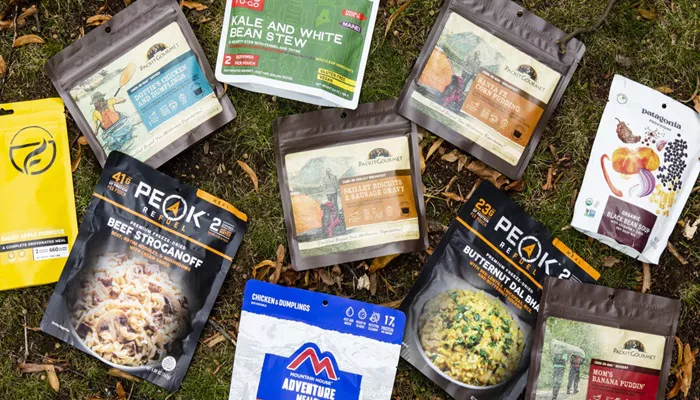Camping is a fantastic way to escape the hustle and bustle of everyday life. It allows you to connect with nature and recharge your batteries. However, one of the most critical aspects of camping is planning your meals. In this article, we’ll explore the best food options to bring camping for a two-day trip. We will also discuss meal prep, storage tips, and easy-to-follow recipes.
Why Meal Planning is Important
Before we dive into specific foods, let’s talk about why meal planning is essential. Proper meal planning ensures that you have enough food for your trip without overpacking. It saves you time and energy, allowing you to enjoy your camping experience without worrying about what to eat next.
Consider Your Cooking Equipment
First, consider what cooking equipment you’ll have while camping. Common options include:
Portable Grill: Great for cooking meats and vegetables.
Camping Stove: Ideal for boiling water and cooking meals in pots and pans.
Campfire: A classic option for cooking and roasting.
Cooler: Essential for keeping perishables fresh.
Once you know your cooking capabilities, you can better plan your meals.
Essential Food Groups for Camping
When planning your camping menu, aim for a balance of different food groups. This includes proteins, carbohydrates, fats, fruits, and vegetables. Each group plays a role in keeping your energy levels up and ensuring you feel satisfied.
1. Proteins
Proteins are vital for muscle repair and energy. Here are some excellent protein sources to pack for your camping trip:
Canned Tuna or Salmon: Easy to pack and requires no cooking. They are perfect for sandwiches or salads.
Beef Jerky: A great snack option that doesn’t need refrigeration. It’s high in protein and easy to carry.
Chicken or Turkey: Pre-cooked or marinated chicken breasts are convenient for grilling. They cook quickly and can be eaten hot or cold.
Eggs: If you have a cooler, eggs are versatile. You can scramble them for breakfast or add them to other dishes.
2. Carbohydrates
Carbohydrates provide energy for your outdoor adventures. Here are some convenient options:
Whole Grain Bread or Wraps: Perfect for sandwiches. They are filling and can hold up well without getting squished.
Rice or Quinoa: These grains can be cooked over a camp stove and served with proteins and veggies. They are filling and nutritious.
Instant Oatmeal: A quick and easy breakfast option. Just add hot water, and it’s ready in minutes.
Granola Bars: A perfect on-the-go snack. They provide quick energy and are easy to pack.
3. Healthy Fats
Healthy fats are essential for overall health and help keep you full. Consider these options:
Nuts and Seeds: Almonds, walnuts, and pumpkin seeds are nutritious snacks. They provide energy and are easy to pack.
Nut Butter: Single-serving packets of almond or peanut butter are great for spreading on bread or fruit.
Olive Oil: A small bottle can be used for cooking or drizzling over dishes for added flavor.
4. Fruits and Vegetables
Fruits and vegetables are crucial for hydration and essential vitamins. Here are some camping-friendly options:
Fresh Fruit: Apples, oranges, and bananas are sturdy fruits that don’t require refrigeration. They make great snacks.
Pre-cut Vegetables: Carrot sticks, bell peppers, and cucumbers can be packed in airtight containers. They are great for snacking or adding to meals.
Dried Fruits: Options like apricots, raisins, or cranberries are lightweight and provide a sweet energy boost.
Sample Meal Plan for 2 Days
Now that we have covered the essentials, let’s create a sample meal plan for your two-day camping trip.
Day 1
Breakfast:
Instant oatmeal with dried fruits and nuts.
Fresh fruit (like an apple or banana).
Lunch:
Whole grain wraps with turkey, cheese, and pre-cut vegetables.
A handful of nuts for a snack.
Dinner:
Grilled chicken with quinoa and sautéed vegetables (using olive oil).
S’mores for dessert (marshmallows, chocolate, and graham crackers).
Day 2
Breakfast:
Scrambled eggs with spinach (if you have fresh spinach).
Granola bars for an extra boost.
Lunch:
Canned tuna salad (mix with olive oil, salt, and pepper) served on whole grain bread.
Fresh fruit for dessert.
Dinner:
Beef or veggie kebabs grilled over the campfire.
Instant rice on the side.
Dried fruit for a sweet finish.
SEE ALSO: What to Bring Camping for Beginners
Storage and Preparation Tips
When camping, proper food storage is essential. Here are some tips:
Use a Cooler Wisely
Pack Efficiently: Use ice packs to keep perishables cool. Place items that need to stay cold at the bottom.
Limit Openings: Every time you open the cooler, cold air escapes. Try to keep it closed as much as possible.
Pre-Prep Meals
Marinate Proteins: Marinate chicken or tofu before your trip to save time.
Cut Veggies at Home: Pre-cut vegetables to make meal prep easier. Store them in airtight containers.
Plan for Leftovers
If you have extra food, plan to use it in different ways. For example, leftover grilled chicken can be added to salads or wraps.
Helpful Cooking Tools to Bring
Here are some cooking tools to consider bringing along:
Portable Grill or Camping Stove: Essential for cooking meals.
Cooking Utensils: Don’t forget spatulas, tongs, and a can opener.
Cutting Board and Knife: For meal prep.
Pots and Pans: For cooking rice, oatmeal, or frying eggs.
Staying Hydrated
Hydration is crucial, especially when engaging in physical activities like hiking. Always carry enough water for drinking and cooking. Consider bringing:
Water Bottles: Reusable bottles are environmentally friendly.
Water Purification Tablets: If you plan to drink from natural sources, bring purification tablets or a water filter.
Conclusion
Planning your food for a two-day camping trip doesn’t have to be complicated. By focusing on essential food groups and preparing in advance, you can ensure that your meals are satisfying and nutritious. Remember to balance proteins, carbohydrates, healthy fats, fruits, and vegetables. With proper planning, you can enjoy delicious meals while immersing yourself in nature.
Related topics:
- Is It Safe to Sleep Outside Without a Tent?
- What is Camping Without a Tent Called?
- How Much Does a Portable Stove Cost?

